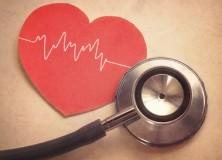We’ve been talking about heart-related issues in honour of Heart Month, and this particular article may be among the most important of all because it will give you a look into the impact of iron deficiency anemia on your heart.
I want to ask you a question: How quickly would you get yourself to a doctor after experiencing symptoms of iron deficiency? Now, how quickly would you get yourself to a doctor if you were experiencing symptoms of an acute heart disease? A lot quicker, right?
What many people don’t realize is that chronic iron deficiency can not only cause symptoms much like those of a heart disease, but it can also cause and aggravate existing heart problems (such as hypertension, heart failure, cardiovascular insufficiencies, cardiomyopathy, etc.) and can even increase the risk of death.
Knowing the Difference
Untreated iron deficiency may cause cardiovascular symptoms that can make it difficult to tell the difference between iron deficiency and a cardiovascular emergency. Some symptoms that you might experience with both iron deficiency and heart disease can include:
- Rapid or irregular heart rate
- Palpitation
- Chest pain
- Difficulty concentrating
- Fatigue
- Weakness
- Shortness of breath
It goes without saying that any new or alarming symptoms should be evaluated by a doctor. You should seek emergency treatment if the above symptoms come on very suddenly, are severe, or are accompanied by:
- Fainting
- Sudden or severe shortness of breath
- Sweating
- Nausea or vomiting
If You Already Have Heart Disease
Anemia is found in as high as 50% of people with congestive heart failure and 10% – 20% of people with coronary heart disease. Iron deficiency can actually worsen heart diseases. The more your heart has to pump to adapt to an increased workload, the more damage it is doing to itself (ie. impacting cardiac output and potentially leading to heart muscular hypertrophy or heart insufficiency). If you already have a heart disease, treating iron deficiency can be a crucial component to keep your condition from worsening.
What Else You Should Know
This is not meant to alarm you, but rather to open your eyes to the seriousness of iron deficiency and the impact it can have on your heart.
It can be easy to blow off the symptoms of mild iron deficiency because in the early stages, symptoms might not really affect you or your day-to-day life all that much; treating it early and being consistent with treatment, though, can help keep your heart healthy and lower your risk of several heart conditions before it’s too late.
Take this to heart: Prevention is your best defense.
This month’s articles are dedicated in loving memory of my parents, Leo Dove (who suffered a catastrophic stroke in 1993 and passed in 1996) and Alice Dove (who suffered her first and fatal heart attack in 2001). The woman I am today, I am because of you. The best treatment for heart and stroke is prevention.
Content and advice provided on The Iron Maiden is for information purposes only and should not serve as a substitute for a licensed health care provider, who is knowledgeable about an individual’s unique health care needs


